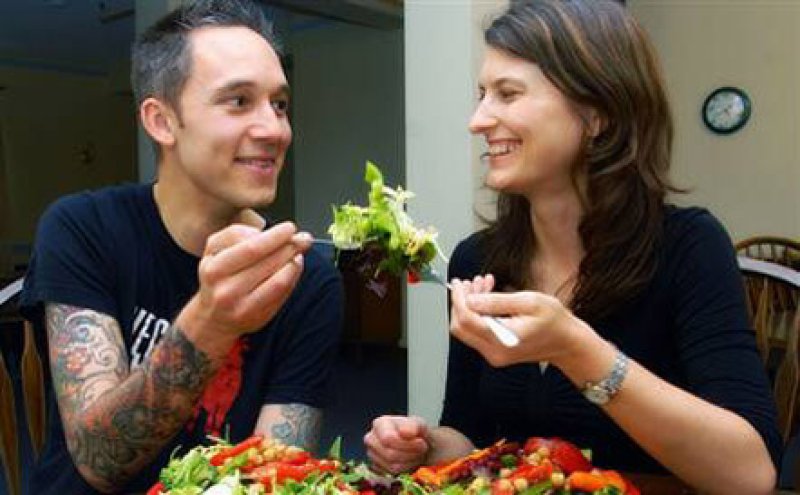A vegetarian diet can be healthy for you. Just like any diet. Even if you only eat salads or any food at McDonald’s. It can also be bad for you, just like any diet. If you want to eat Big Mac’s in obscene quantities every day as a publicity stunt for a documentary, you can, and you will feel awful, but you can more easily find unhealthy looking vegetarians.
Statistical correlation claims that the “least processed” foods are healthier but the definition of such is unclear. All bread is processed but matching white bread to diseases led to claims that whole grain bread is healthier. There is no scientific basis for it. It’s all bread, a lot of carbohydrates and calories. Eat too much of it without additional exercise and you will gain weight. Orange juice is basically Coca-Cola with some vitamin C but if it’s squeezed by hand it’s considered less processed and therefore healthier.
A recent analysis using 10 years of the 2001 and 2002 ATTICA study in Greece – begun after the Mediterranean Diet again became the latest craze – brought some sense into the matter, and it concludes that if you engage in a vegetarian diet, you won’t end up more healthy than when you ate meat, if you stay obese. And that affirms calories are the problem, not the type of calories.
The results were what common sense would tell you. Higher calorie foods like juices and potatoes and chocolate are all vegetarian, but they don’t make you healthier than eating a steak. The weakness of this study is the same as in all Food Frequency Questionnaire claims; it relies on memory of diet, in this case over the past year, and has so many outcomes and foods almost anything can be linked with statistical significance; 156 foods. And this analysis used a very small sample, 146, so small changes could have a big impact.































